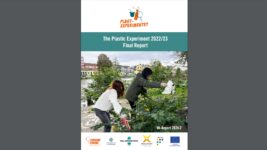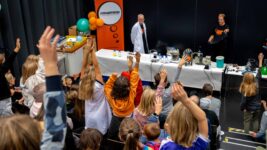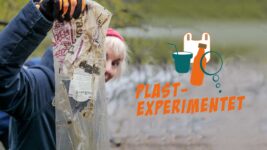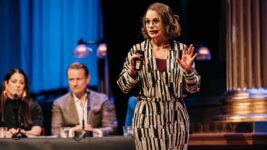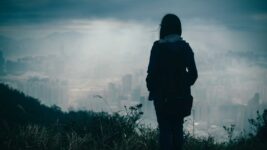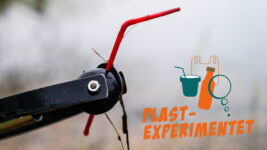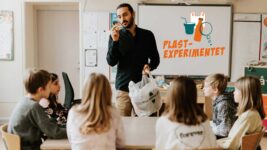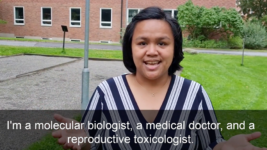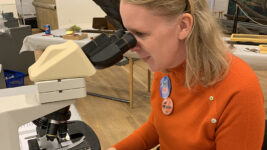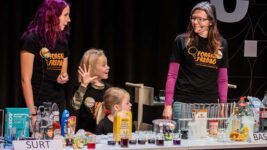Findings from Sweden’s largest plastic waste experiment now…
The Plastic Experiment is a nationwide Citizen Science project in which Keep Sweden Tidy Foundation, Public & Science Sweden and the University of Gothenburg have… Läs mer
European Researchers’ Night to spark scientific curiosity across…
A week of exploration and discovery awaits visitors in 24 locations across Sweden at this year’s Swedish European Researchers’ Night, taking place from 25 –… Läs mer
Most plastic litter found on beaches reveals Swedish…
The first report of the Plastic Experiment, a citizen science project involving young people and members of the public from across Sweden, has now been… Läs mer
Researchers’ Grand Prix Digital 2023
In the Researchers’ Grand Prix, researchers compete to present their research in the most understandable, captivating, and inspiring way in just 4 minutes. Researchers’ Grand… Läs mer
Physical barriers common in Swedish homes reveals new…
Steps up to the front door and nothing to hold onto next to the toilet. These are common problems for those with mobility issues, according… Läs mer
Showcasing inspiring science across Europe: European Researchers’ Night…
Twenty-five countries will be participating in this year’s European Researchers’ Night (ERN) on Friday 30 September. From Iceland to Italy, Poland to Portugal, Malta to… Läs mer
Whole of Sweden invited to help research plastic…
The Plastic Experiment is part of ForskarFredag, European Researchers’ Night in Sweden, and is being run by VA in collaboration with the Keep Sweden Tidy… Läs mer
Swedish school pupils help log 19,000 items of…
Plastic litter in the oceans has major consequences for humans, plants and animals, but it is a problem that starts on land. In the Plastic… Läs mer
HERStory: Strong women inspiring the next generation of…
Our congratulations go out to Richelle Duque Björvang on winning the 2021 HERStory competition. Richelle is finishing her PhD at the Karolinska Institute in Stockholm… Läs mer
Swedish Researchers’ Night 2021 – providing a glimpse…
Experiments, stand-up comedy, guided lab tours, classroom visits and answering all sorts of questions about research and what life might be like in the future,… Läs mer
How accessible is Swedish housing? Swedish pupils and…
During September and October, Swedish school pupils, senior citizens and anyone interested will be investigating the environmental barriers that can be found in Swedish housing.… Läs mer
ForskarFredag 2021: Ask researchers about home and life…
During ForskarFredag, thousands of children, young people and adults will meet hundreds of researchers around Sweden. Research on the major issues for the future will… Läs mer

